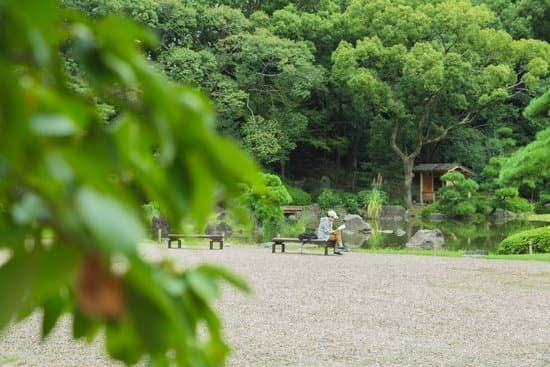Are you looking for gardening club ideas for seniors? Gardening can be a fulfilling and rewarding activity for seniors, providing a range of physical, mental, and emotional benefits. In this article, we will explore the various ways in which gardening can positively impact the lives of seniors, and how to create an enjoyable and inclusive gardening club experience for older adults.
Gardening has been proven to have numerous benefits for seniors, including improved physical health, mental well-being, and social connectedness. From boosting mood and reducing stress to providing gentle exercise and promoting cognitive function, gardening offers a holistic approach to senior wellness.
In the following sections, we will discuss how to choose the right plants for seniors, create accessible garden environments, organize engaging club activities, build community through social connections, incorporate therapeutic elements into gardening practices, embark on group projects and collaborative efforts, as well as practical tips for starting and maintaining a successful gardening club for seniors. Whether you are considering starting a new gardening club or looking to enhance an existing one, this article will provide valuable insights and inspiration.
Choosing the Right Plants for Seniors
When it comes to gardening club ideas for seniors, one of the most important factors to consider is choosing the right plants for their needs. Seniors may have limited mobility and energy, so selecting low-maintenance and high-yield options is crucial to ensure that they can enjoy their gardening experience without feeling overwhelmed.
Low-Maintenance Plant Options
Seniors may benefit from low-maintenance plants that require minimal care and attention. Some great options include perennial flowers like coneflowers, black-eyed susans, and daylilies, as well as shrubs like hydrangeas and roses. These types of plants are relatively easy to grow and maintain, providing seniors with beautiful blooms without a lot of effort.
High-Yield Vegetables
For seniors who enjoy growing their own produce, high-yield vegetables are a great choice. Consider planting tomatoes, zucchini, peppers, or leafy greens like lettuce and spinach. These vegetables are not only productive but also versatile in the kitchen, allowing seniors to enjoy the fruits of their labor in delicious meals.
Adapted Plants for Limited Mobility
In addition to low-maintenance and high-yield options, it’s essential to consider plants that are adapted for limited mobility. This includes raised garden beds or container gardening to make it easier for seniors to reach their plants without bending or kneeling. Additionally, installing drip irrigation systems can help reduce the need for frequent watering and maintenance.
By carefully selecting the right plants for senior gardeners, gardening clubs can ensure that their members have an enjoyable and rewarding experience while tending to their gardens.
Creating an Accessible Garden Environment
When creating a gardening space for seniors, accessibility is key to ensure that everyone can participate and enjoy the benefits of gardening. Here are some tips for making your garden environment senior-friendly:
- Raised Beds: Consider using raised beds to allow seniors to garden without having to bend or kneel, reducing strain on their joints and muscles. Raised beds also make it easier for individuals with mobility issues to reach their plants and tend to them.
- Wide Pathways: Ensure that the pathways in the garden are wide enough to accommodate wheelchairs, walkers, or individuals with limited mobility. This will allow everyone to move around the garden freely and participate in gardening activities.
- Seating Areas: Incorporate seating areas within the garden to provide seniors with opportunities to rest and relax while they engage in gardening tasks. Having a comfortable place to sit can make gardening more enjoyable and accessible for seniors.
- Adaptive Tools: Provide adaptive tools such as ergonomically designed hand trowels, rakes, and pruners that are easier for seniors with limited strength or dexterity to use. These tools can make gardening more manageable and enjoyable for older adults.
By implementing these tips, you can create a senior-friendly garden environment that fosters inclusivity and allows all members of your gardening club to participate and enjoy the benefits of gardening.
Additionally, consider incorporating features such as sensory gardens or accessible raised planter boxes that can be easily accessed from a seated position. These elements can provide additional opportunities for engagement and enjoyment for seniors involved in the gardening club. By creating an environment that is welcoming and accommodating for all members, you can foster a sense of community and camaraderie within your gardening club for seniors.
Organizing Regular Club Meetings and Events
Guest Speakers and Workshops
Inviting guest speakers to share their expertise on topics such as organic gardening, composting, or floral arrangement can provide valuable learning opportunities for your members. Workshops on garden-related crafts or DIY projects can also be both educational and enjoyable for seniors looking to expand their horticultural knowledge.
Garden Tours
Organizing tours of local botanical gardens, nurseries, or even private gardens can be an exciting way for members to explore different gardening techniques and gain inspiration for their own projects. These outings also provide opportunities for socializing and bonding among club members outside of regular meetings.
Gardening Contests and Shows
Hosting friendly competitions within the club, such as best flower arrangement or largest vegetable harvest, can add an element of fun and friendly rivalry to your events. You could also consider participating in local gardening shows or fairs as a group, showcasing the fruits of your labor and gaining recognition for your shared efforts as a club.
By incorporating these engaging activities into your gardening club for seniors, you can create a vibrant and enriching experience that will keep members coming back week after week. Providing diverse opportunities for learning, sharing, and socializing will help foster a strong sense of community within the group while allowing each member to develop their skills as a gardener.
Social Benefits of Gardening Clubs
The social benefits of gardening clubs for seniors cannot be overstated. These clubs provide a sense of community and companionship, which is crucial for the emotional well-being of older individuals. Many seniors experience feelings of loneliness and isolation, but participating in a gardening club can help combat these negative emotions by providing opportunities to connect with others who share similar interests.
One of the best aspects of gardening clubs is that they bring people together from all walks of life. Seniors can meet others in their community who they might not have otherwise crossed paths with.
This helps to build a sense of belonging and support, as members form bonds over their shared love for gardening. Whether it’s swapping tips on growing tomatoes or simply enjoying each other’s company while working in the garden, gardening clubs foster a sense of camaraderie among seniors.
Research has shown that social interaction is important for maintaining mental sharpness and cognitive function as people age. Gardening club activities provide an avenue for seniors to engage in meaningful conversations and shared experiences, which can help keep their minds active and stimulated. Additionally, the sense of purpose and accomplishment that comes from tending to a garden alongside others can greatly improve overall quality of life for seniors.
| Social Benefits | Relevant Data |
|---|---|
| Building Community | Gardening clubs foster a sense of belonging and support among seniors. |
| Mental Well-being | Participating in gardening club activities can help maintain mental sharpness and cognitive function. |
| Camaraderie | Gardening clubs create opportunities for seniors to form friendships and share experiences. |
Incorporating Therapeutic Elements
When it comes to gardening club ideas for seniors, it’s important to understand the therapeutic elements of gardening and how it can benefit the health and well-being of older adults. For many seniors, gardening can be a form of therapy that provides both physical and mental benefits. Gardening can help reduce stress, anxiety, and depression, while also providing a sense of purpose and accomplishment.
One therapeutic element to incorporate into gardening activities for seniors is sensory stimulation. This can include planting flowers with vibrant colors and fragrant scents, as well as growing herbs with different textures and tastes. Creating a sensory garden can engage seniors’ senses and promote relaxation and mindfulness. Another therapeutic aspect of gardening is the physical activity involved. Gardening tasks like planting, weeding, and watering can help improve mobility, strength, and flexibility for older adults.
In addition to sensory stimulation and physical activity, incorporating educational elements into gardening club activities can also be beneficial for seniors. Providing opportunities for learning about different plant species, gardening techniques, or environmental sustainability can stimulate cognitive function and keep seniors mentally engaged. By understanding the healing power of gardening and incorporating these therapeutic elements into club activities, seniors can experience improved overall wellness and quality of life.
| Therapeutic Element | Benefit |
|---|---|
| Sensory Stimulation | Promotes relaxation and mindfulness |
| Physical Activity | Improves mobility, strength, flexibility |
| Educational Elements | Stimulates cognitive function, keeps seniors mentally engaged |
Ideas for Group Projects and Collaborative Gardening Efforts
As gardening has numerous benefits for seniors, creating a gardening club specifically tailored to their needs can provide an opportunity for socialization, physical activity, and mental stimulation. One of the best ways to foster a sense of community and teamwork within a gardening club is through group projects and collaborative gardening efforts. These activities not only allow seniors to work together towards a common goal but also provide a sense of accomplishment and fulfillment.
Here are some ideas for group projects and collaborative gardening efforts that can be incorporated into a senior gardening club:
- Creating a themed garden: Encourage members to brainstorm and decide on a theme for the club’s garden, such as a butterfly garden, herb garden, or sensory garden. This will not only add variety and visual interest to the space but also create an opportunity for members to research and learn about different types of plants.
- Adopting a communal plot: Consider allocating a section of the garden for communal planting where members can collectively decide on what to grow. This shared responsibility fosters teamwork and allows everyone to participate in the nurturing of the plants.
- Implementing a buddy system: Pair up members with different skill levels or physical abilities to work together on specific tasks in the garden. This promotes intergenerational bonding and allows experienced gardeners to mentor beginners.
With these group projects and collaborative gardening efforts, seniors can enjoy the benefits of gardening while fostering camaraderie within the club. These activities promote inclusivity, participation, and shared enjoyment of the natural world. By working together towards common goals, seniors can cultivate meaningful connections with one another while reaping the rewards of their collective efforts.
Tips for Starting and Maintaining a Successful Gardening Club
In conclusion, starting and maintaining a successful gardening club for seniors can provide an array of benefits, including physical activity, mental stimulation, social interaction, and a sense of accomplishment. By choosing the right plants and creating an accessible garden environment, seniors can enjoy a low-maintenance yet high-yield gardening experience.
Organizing regular club meetings and events not only provides engaging activities but also fosters a sense of community and companionship among members. Additionally, incorporating therapeutic elements into the club’s activities can enhance the overall well-being of seniors through the healing power of gardening.
One of the key aspects to consider when initiating a gardening club for seniors is to brainstorm ideas for group projects and collaborative gardening efforts. This could include planning themed garden displays, creating raised beds for easy access, or even starting a community produce stand. Encouraging participation in these group projects can create a sense of teamwork and collaboration while also fostering a supportive environment within the club.
To ensure the longevity and success of the gardening club for seniors, it is essential to establish clear guidelines for membership, leadership roles, and ongoing maintenance of the garden space. Incorporating educational workshops or inviting guest speakers to share their expertise can also add depth to the club’s offerings and attract new members.
By implementing these tips and strategies, seniors can enjoy a sustainable and enjoyable experience through their involvement in a gardening club tailored to their needs and interests. And as they continue to grow together in their shared love for gardening, they will reap both physical and emotional rewards from this enriching activity.
Frequently Asked Questions
What Does Gardening Do for Seniors?
Gardening provides seniors with numerous physical, mental, and emotional benefits. It can help improve their strength, flexibility, and endurance while also reducing stress and anxiety. Additionally, it offers a sense of purpose and accomplishment.
How Do You Organize a Garden Club?
Organizing a garden club involves finding like-minded individuals who are passionate about gardening and are interested in joining a club. You can start by reaching out to friends, family, and local gardening communities to gauge interest and set up an initial meeting to discuss the club’s structure.
How Do I Attract New Members to My Garden Club?
Attracting new members to your garden club can be achieved through various strategies such as hosting gardening workshops or events that are open to the public. Utilizing social media platforms to showcase the club’s activities and sharing personal stories of how gardening has positively impacted members‘ lives can also help draw in new participants.

Welcome to my gardening blog! I am passionate about plants and enjoy sharing my knowledge and experiences with others. In this blog, I will write about everything related to gardening, from tips on how to get started to updates on my own garden projects.





